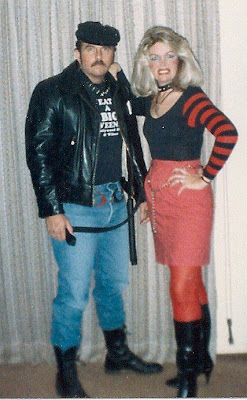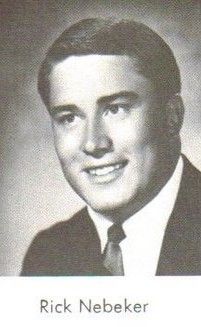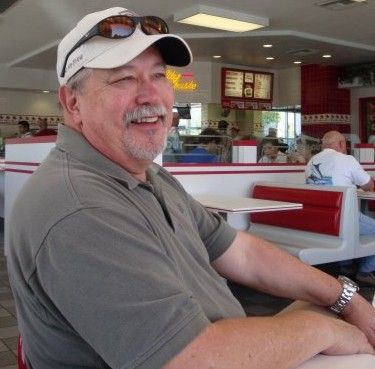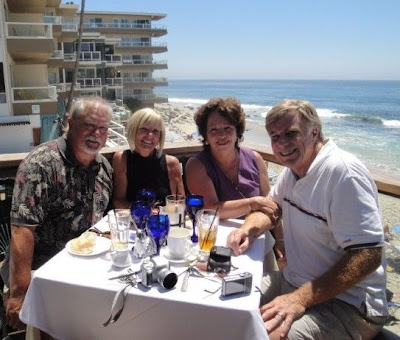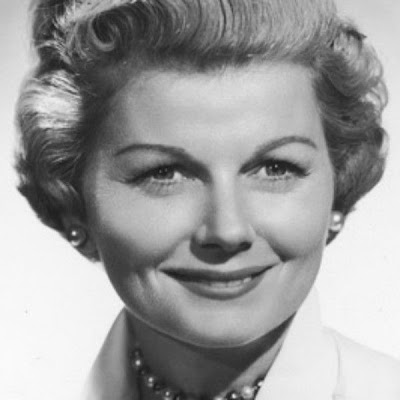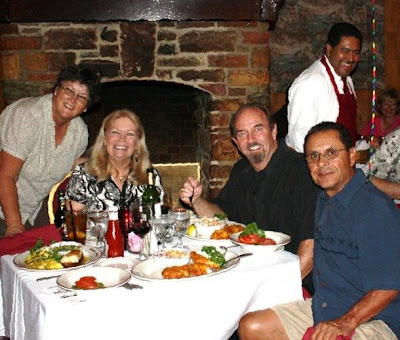Retired dental surgeon Gene Schklair used to concentrate on giving people a nice smile; now he concentrates on giving art patrons something to smile about.
Schklair gave up cosmetic dentistry to become a full-time sculptor. His whimsical, life-size figures sell for as much as $18,000 each. Not bad for an octogenarian who's working on his second career.
And Schklair, 80, is only one of many creative people who are working on second careers at Burbank Senior Artists Colony, a twist on senior housing that encourages residents to expand their horizons at a time when many people are beginning to narrow the scale of their lives. The philosophy is simple: You're never too old to become the person you want to be. And there's a wonderful side benefit, according to recent studies: Artful self-expression can lead to a longer, healthier life.
The Colony, which targets people 55 and older, opened in 2005 in an attractive five-story building a block from downtown Burbank. A sign outside says, "Get Active, Be Creative, Be Inspired." The words aren't just window dressing: On any given day, residents might be involved in an intergenerational writing workshop, a watercolor class, a sculpture seminar or a tai chi class. Or, they might be making a movie.
Evenings contain a wealth of creative opportunities, too: There might be a gathering in the Colony's 45-seat theater for a play, poetry readings, karaoke or open-mike sessions. Or residents might be found at a wine-and-cheese party in the lounge.
"This building has been a godsend to so many people," Schklair says. "People come here and they come alive."
Charlene McDonald, 71, couldn't agree more. She had been living alone and found herself involved in "fewer and fewer activities. Then I walked in here and I knew I was home." She paints, writes short stories, is working on a memoir, and "I'm writing the Great American Novel," she says, laughing. "One day I'm going to self-publish it."
The colony was founded on several premises: Creative people enjoy being around like-minded people; not everyone wants to retire to a house on a golf course. The final premise — that health is connected to intellectual stimulation — is key. Aging studies indicate that seniors who participate in arts programs are in better health, less prone to depression, and take less medication.
One pioneer researcher, Dr. Gene Cohen, called it "intellectual sweating." Cohen, who died last year, was the first chief of the Center on Aging at the National Institute of Mental Health. He advised people to "make it a point to learn something new, instead of turning to hormone or ginkgo biloba." His research found that the later adult years can be a time of great creativity. As long as people stimulate their brains by learning and trying new things, new brain cells are created and – barring disease -- there's almost limitless capacity for intellectual growth.
Cohen's theories are a mantra for the Colony, which is an outgrowth of a senior education program called Engage: The Art of Active Aging (
www.engagedaging.org). Founded by Tim Carpenter, the nonprofit organization provides educational programs for thousands of low- and moderate-income seniors living in apartment communities throughout Southern California.
The Colony carries those programs further, offering housing plus such amenities as a digital film editing lab, galleries, an outdoor performance area and art and sculpture studios that are open 24/7. The formula earned the Colony recognition as a model for creative aging by the National Endowment for the Arts.
It seems to be a winning formula in other ways, too: Construction is expected to begin later this year or early next year for North Hollywood and Long Beach colonies. Both are expected to open in 2012.
The program tends to draw higher-income retirees; residents pay about $1,700 per month for a 650-square-foot, one-bedroom apartment; meals are not available, but classes and activities are free, including use of a fitness center and pool. (The colony doesn't have assisted living facilities.)
The calendar in the lobby is packed. "We try to offer a large variety of things," says Carpenter, the founder. "It's all about reinventing yourself. We have a lot of people who dust off their dreams to try something for the first time."
Suzanne Knode took her first screenwriting course at the Colony when she was in her early 60s. Her film about an elderly woman who robs a convenience store while balancing on her walker was cast and made by fellow residents. It eventually made its way to the film festival circuit.
Sue Mauro, 73, is another senior who tried something new after arriving at the colony. "I'd never been an actor or actress," she said. "I thought, 'I'll just be part of the audience.'" That wasn't what happened, though: She's now acting in a film that Colony residents are making.
"I love to hear the words, 'Cut' and 'Action,'" she says. "Life here is just marvelous."
RESOURCES GUIDE
Fall means back to school for kids and young adults. But hundreds of programs in the Southland are open to seniors, too. And relatives who are concerned about keeping their elders healthy —mentally and physically — should encourage them to participate. Research indicates that as long as people stimulate their brains by learning and trying new things, intellectual growth continues, even at an advanced age.
The easiest courses to drop into are held at senior and community centers, often sponsored by city recreation departments. Many are free or low-cost.
--City of Los Angeles Senior Centers: dial 311 from within city limits,
http://www.laparks.org/contact.htm.
--Los Angeles County Community and Senior Services: (800) 510-2020;
css.lacounty.gov/.
--Senior and Community Centers in Orange, Riverside and San Bernardino counties:
http://www.vitalco.net/Senior.htm.
-- California Department of Education: Hundreds of adult schools are listed in the California Adult Education Provider Directory, (916) 322-2175,
http://www.cde.ca.gov/sp/ae/ds/.
--Elder Hostel: This venerable nonprofit vacation program, found in 1975, was renamed Road Scholar last year, 800 454-5768,
http://www.roadscholar.org. It offers nearly 8,000 educational tours in all 50 states and more than 90 countries. Many tours are less than $600 per person.
McClure's column on caring for and staying connected with aging parents runs in Home monthly. 